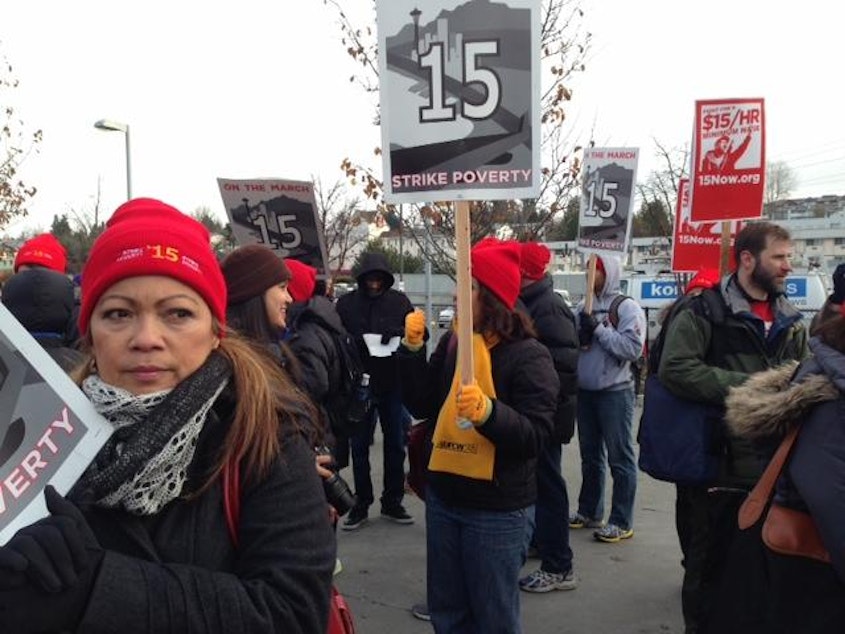Some workers earned more than others when Seattle raised minimum wage

A new report says that when Seattle first raised the minimum wage, some workers benefited more than others.
“Workers who had more experience to begin with, they saw their earnings go up,” said Mark Long, a University of Washington economist and co-author of the new study. “Whereas for less experienced workers, they saw their earnings were flat.”
The report is a working paper from researchers at Amazon, the UW and New York University that’s part of a longer term minimum wage study. It covers people already working at low-paid jobs in Seattle in 2015 and studied what happened after the minimum wage in the city began rising toward $15 an hour.
It found:
- For workers who had been earning less than the new minimum wage, average earnings went up $12 per week. That was a function of higher hourly wages but a decreased number of hours worked.
- Workers with above-median experience earned $19 more per week. Those with less experience saw little change.
- In the six quarters after Seattle first increased the minimum wage to $11 an hour in 2015, turnover rates declined by 8 percent.
- The growth in new low-wage workers in Seattle lagged behind the rest of the state.
An earlier study by the same group found the Seattle wage hike had hurt low wage worker's overall earnings because employers offered fewer hours. Critics of that study, including organized labor and researchers at the Institute for Research on Labor and Employment, questioned the methodology behind the study, which generated bad news about the minimum wage for some workers. Groups continue to question the methodology in the new report.
Long said the new findings could also raise questions for Seattle city leaders: “Are you trying to benefit workers who are working at a minimum wage for a long period of time, or are you trying to benefit new entrants into the labor market?”
Seattle's minimum wage is now up to $15.45 an hour at bigger businesses with more than 500 employees.
You can read the full report here or below.




